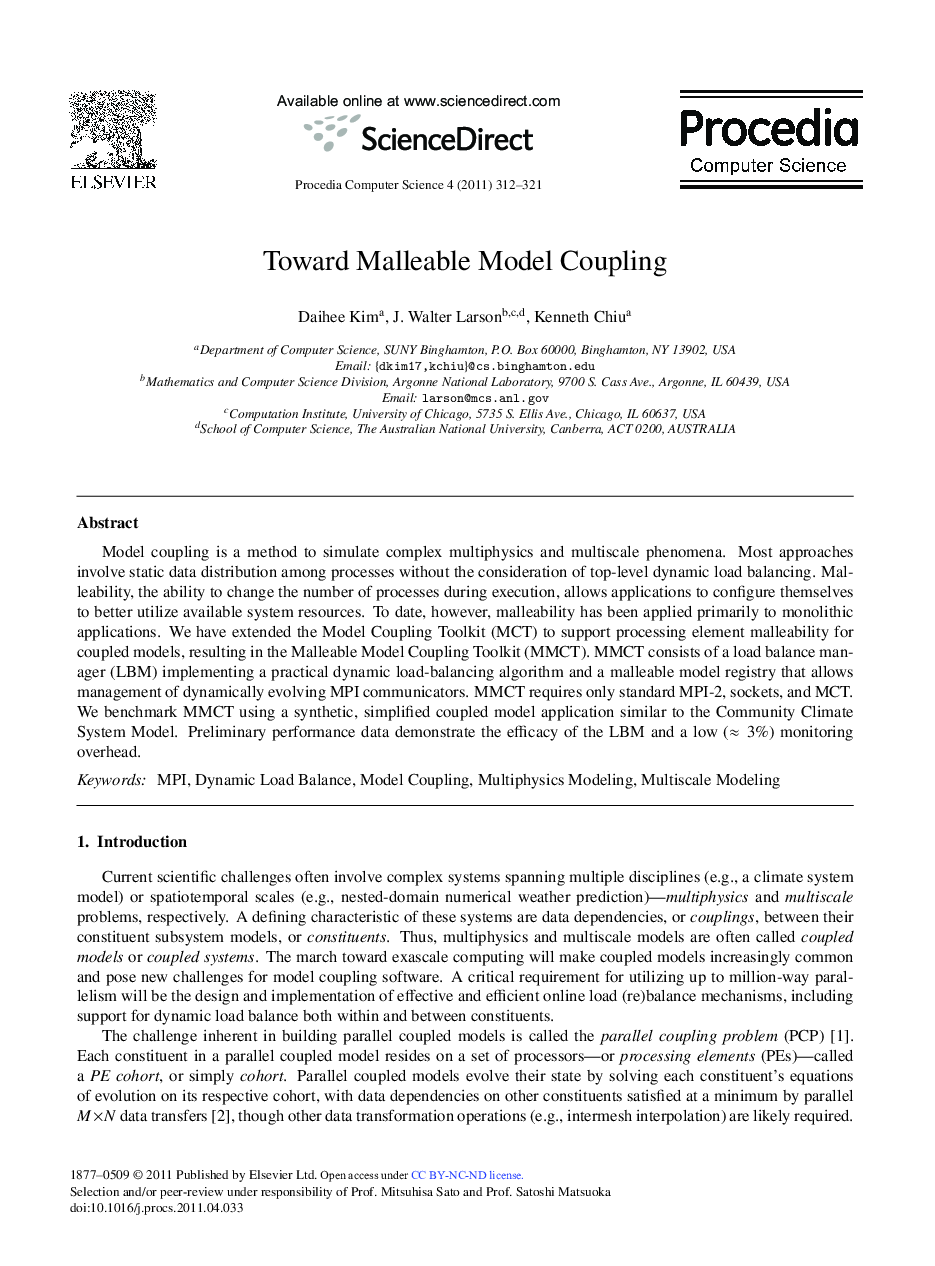| Article ID | Journal | Published Year | Pages | File Type |
|---|---|---|---|---|
| 488161 | Procedia Computer Science | 2011 | 10 Pages |
Model coupling is a method to simulate complex multiphysics and multiscale phenomena. Most approaches involve static data distribution among processes without the consideration of top-level dynamic load balancing. Malleability, the ability to change the number of processes during execution, allows applications to configure themselves to better utilize available system resources. To date, however, malleability has been applied primarily to monolithic applications. We have extended the Model Coupling Toolkit (MCT) to support processing element malleability for coupled models, resulting in the Malleable Model Coupling Toolkit (MMCT). MMCT consists of a load balance manager (LBM) implementing a practical dynamic load-balancing algorithm and a malleable model registry that allows management of dynamically evolving MPI communicators. MMCT requires only standard MPI-2, sockets, and MCT. We benchmark MMCT using a synthetic, simplified coupled model application similar to the Community Climate System Model. Preliminary performance data demonstrate the efficacy of the LBM and a low (≈3%) monitoring overhead.
